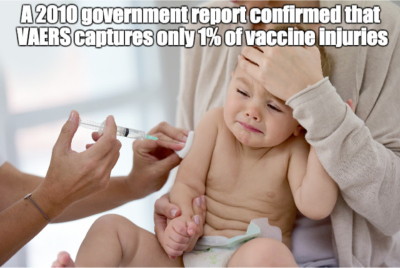1. The Dr Judy Wilyman Report:
Newsletter 165 Vaccination: The Removal of “Informed Consent without Coercion” in Australia 18 July 2017
Open Letter
To the University of Wollongong (UOW) Academics and the concerned Australian community,
The removal of “informed consent without coercion” with the mandating of 16 vaccines in government social welfare policies is a violation of good medical practice (*NHMRC) and of fundamental human rights.
The No Jab No Pay/Play policies are founded on three main myths and these policies are not legitimised in Australian public health legislation (Vaccination in Australia is not compulsory):
The three myths are:
1) That vaccines create herd immunity that is necessary for community protection
2) That adverse events to vaccines are rare.
3) That vaccines do not cause autism or the significant morbidity (chronic illness) we have seen increase in children since the vaccination schedule has expanded.
My PhD thesis provides evidence that these claims are false yet the University of Wollongong has used a comment by Professor Heather Yeatman (who is not an expert in immunisation, vaccination science or policy) to promote vaccines to the public based on her beliefs. By allowing her to do this, I believe the University of Wollongong (UOW) is breaching its charter to promote integrity in academic knowledge.
Further, universities such as UOW, are funded by industry and they are permitting members of the public to use the university’s complaint procedures to make false allegations about students research and reputation. These can be published in the mainstream media because members of the public (including known activists) are not subjected to the confidentiality clause in university investigations. This is being done to students doing independent research on vaccines because industry has a large vested interest in these policies.
In 2014 Dr. John Cunningham, made false allegations to UOW about my academic research on the whooping cough vaccine that was given a high distinction by UOW academics in 2006. These false allegations were provided to the media in an attempt to discredit my research. The UOW Vice-Chancellor of Research, Judy Raper, described this complaint as an “unwarranted investigation” that “should not have happened” and stated that the university’s procedures had been misused by the complainant.
In 2016 Dr. John Cunningham again provided unsupported and disparaging comments about the assessment of my PhD in the Australian Newspaper (Murdoch’s News Ltd) . These comments were false and UOW did not provide evidence to support these disparaging remarks made by a lobby group activist. This false information about the assessment of my PhD by the University of Wollongong has never been rectified by the university in the media and this is suppressing the vaccination debate.
The University of Wollongong, the mainstream media and industry-lobby group activists are promoting false information on vaccines to the public/politicians and this represents a serious threat to humanity when politicians are basing mandatory and coercive vaccination policies on this false information.
For five years I have provided my academic research and publications to you for free through my website. This is because the mainstream media will not provide this side of the academic debate to the public. However, I can no longer afford to fund my website so if you would like to continue receiving this information could you please donate to my website by clicking on the donate buttonon the menu.
Australia is removing a fundamental tenet of medical practice in the NJNPay/Play policies without proper public debate that includes doctors, nurses, academics and consumers. This will have serious consequences for the health and medical freedom of the Australian community and it is time to ensure that we have this debate.
*National Health and Medical Research Council (NHMRC).
Dr. Judy Wilyman (PhD)
Bachelor of Science, University of NSW
Diploma of Education (Science), University of NSW,
Master of Science (Population Health), University of Wollongong
PHD The Science and Politics of Australia’s Vaccination Policies, University of Wollongong
Website: Vaccination Decisions
A Response
Dear Judy,
Informed consent has not been removed.
From the Australian Immunization Handbook.
A child can even refuse when a parent has consented.
For further information on Contemporary Challenges regarding Informed Consent & Vaccination in Australia please read
http://para-legal.org.au/health-law/contemporary-challenges-regarding-informed-consent-vaccination-in-australia/
Regards,
Danny Jovica.
Open Letter
Copied to Vice-Chancellor Paul Wellings
20 July 2017
To Professor Heather Yeatman, UOW Academics and the Concerned Australian Community,
The concerned Australian community does not accept your silence in debating vaccination. The University of Wollongong is promoting comments by Professor Heather Yeatman that are resulting in the violation of human rights in Australia and we will not accept your silence. We require you to provide evidence for your comments or remove them from the university website.
Sweden has recently rejected mandatory and coercive vaccination because of the known serious health concerns and the violation of human rights in these policies – and this should apply to all populations.
There are 6 unsupported claims in your comment and I will address them in separate emails so you can respond to each one. Heather Yeatman’s claim is in bold and then I present my response:
Comment 1:
Heather Yeatman: “For more than 50 years children have been immunised and it is one of our best success stories in public health”.
Response: This is incorrect. Vaccination campaigns started 50 years ago but they were voluntary and only recommended for one or two diseases at this time (PhD thesis Chapter 2 and 3). The schedule gradually increased but the government did not begin enforcing vaccination campaigns with the aim of increasing immunisation rates until 1990 – after the diseases were controlled (Professor Fiona Stanley – Australian of the Year 2003). At the same time chronic illness increased 5-fold from 1990 onwards. Correlation is not causation but evidence-based medicine requires that all correlations are investigated before a procedure is declared safe and effective. This study has never been done. The most successful story in the control of infectious diseases was public health reforms – hygiene, sanitation and nutrition (Public Health Authorities of the 20th Century).
Please provide evidence that the increase in allergies, anaphylaxis, autoimmune diseases (diabetes, rheumatoid arthritis etc), autism and other childhood chronic illness is not being caused by the vaccination schedule. This is important if you are claiming that vaccines are one of our biggest success stories in public health. Today’s children are the sickest generation of children yet.
Yours Sincerely,
Dr. Judy Wilyman
_____________________________________________________________
2. World Mercury Project: Hiding Vaccine-Related Deaths With Semantic Sleight-of-Hand

By Robert F. Kennedy, Jr.
Vaccine scientists and the public health community cautiously and occasionally will admit that vaccines can cause adverse reactions just like “any other medication or biological product.” Although experts are less willing to openly disclose the fact that adverse reactions can and do include death, one has only to look at reports to the U.S. Vaccine Adverse Event Reporting System (VAERS) to see that mortality is a possible outcome. From 1990 through 2010, for example, VAERS received 1,881 reports of infant deaths following vaccination, representing 4.8% of the adverse events reported for infants over the 20-year period. Moreover, analysts acknowledge that VAERS, as a passive surveillance system, is subject to substantial under-reporting. A federal government report from 2010 affirms that VAERS captures only about 1% of vaccine adverse reports.
On the international frontier, the public health community—with the World Health Organization (WHO) in the vanguard—previously used a six-category framework to investigate and categorize serious adverse events following immunization (AEFI), including death. Guided by this tool, public health teams examined temporal criteria and possible alternative explanations to determine whether the relationship of an AEFI to vaccine administration was “very likely/certain,” “probable,” “possible,” “unlikely,” “unrelated,” or “unclassifiable.”
In 2013, the WHO’s Global Advisory Committee on Vaccine Safety discarded the prior tool, ostensibly because users “sometimes [found it] difficult to differentiate between ‘probable,’ ‘possible,’ and ‘unlikely’ categories.” The WHO enlisted vaccine experts to develop a “simpler” algorithm that would be more readily “applicable” to vaccines. The resulting four-category system now invites public health teams to classify an AEFI as either “consistent,” “inconsistent,” or “indeterminate” with a vaccine-related causal association or as “unclassifiable.” Despite the patina of logic suggested by the use of an algorithm, “the final outcome of the case investigation depends on the personal judgment of the assessor” [emphasis added], especially (according to the tool’s proponents) when the process “yields answers that are both consistent and inconsistent with a causal association to immunization.”

In a 2017 letter in the Indian Journal of Medical Ethics, Drs. Jacob Puliyel (an India-based pediatrician and member of India’s National Technical Advisory Group on Immunization) and Anant Phadke (an executive member of the All India Drug Action Network) raise important questions about the revised tool. They describe an Orwellian Catch-22 situation wherein it is nearly impossible to categorize post-vaccine deaths as vaccine-related. This is because the revised algorithm does not allow users to classify an AEFI as “consistent with causal association with vaccine” unless there is evidence showing that the vaccine caused a statistically significant increase in deaths during Phase III clinical trials. By definition, however, any vaccine not found to “retain safety” in Phase III trials cannot proceed to Phase IV (licensure and post-marketing surveillance). The result of the algorithm’s convoluted requirements is that any deaths that occur post-licensure become “coincidental” or “unclassifiable.”
Drs. Puliyel and Phadke describe what happened in India when the country’s National AEFI committee assessed 132 serious AEFI cases reported between 2012 and 2016, including 54 infant deaths that followed administration of a pentavalent all-in-one vaccine intended to protect recipients against diphtheria, tetanus, pertussis, hepatitis B, and Haemophilus influenzae type b infections. For babies who survived hospitalization, the committee classified three-fifths (47/78) of the AEFI as causally related to vaccines (with 47% of the incidents viewed as “product-related” and 13% as “error-related”), but they rated nearly all (52/54) of the deaths as either coincidental (54%) or unclassifiable (43%) despite mounting evidence that pentavalent and hexavalent vaccines are increasing the risk of sudden unexpected death in infants.
The absurdity and negligence inherent in the ultimately subjective WHO checklist have not escaped the attention of others in India and beyond. In a series of comments published in the journal Vaccine in response to the 2013 publication of the revised tool, commenters issued the following scathing remarks:
- “Even if a healthy child dies within minutes following vaccination and there is no alternate explanation for the AEFI, even then the powers that be could easily declare that death as coincidental and not due to the vaccine, thanks to the new AEFI. This is dangerous ‘science’.”
- “Amongst the 20 items of their checklist, no less than 15 (75%) are devoted to refute a vaccine-induced causality [emphasis in original]…. After all and as the authors confess with an astonishing ingenuousness, the main point is to ‘maintain public confidence in immunization programs.’”
- “People understand that there are no true coincidences—only events that have been made to appear to be coincidental by either a genuine lack of understand[ing] of the overall facts leading to the ‘coincidence’ reported or by the deliberate suppression of the facts, including when…AEFIs that result in death are made to ‘disappear.’”
- “It seems that huge business in [the] vaccine industry is affecting [the] science of vaccines and we are developing various ways to promote the business at the cost of human lives. …Going for a less sensitive tool for safety concerns is not only illogical but risky for the children of the world.”
Unfortunately, many vaccine proponents appear to be more concerned with forestalling “misconceptions” and “erroneous conclusions about cause and effect” than they are about preventing and identifying adverse events following vaccination. The result, as Dr. Puliyel argues, is that doctors who “naïvely” accept biased reports on vaccine safety “are losing the trust of the public and in the process…endangering public health.”
